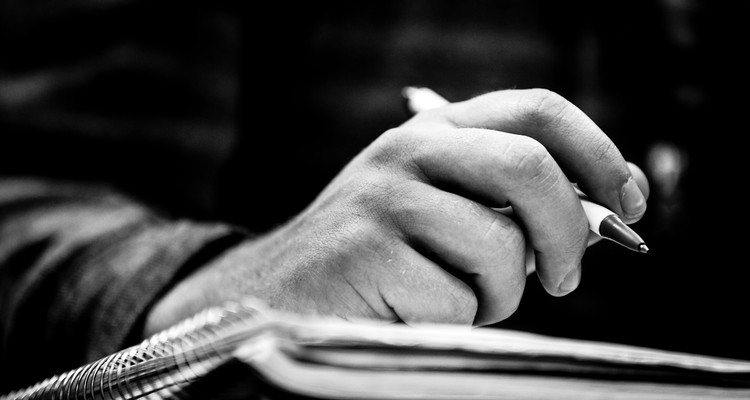When Adam BenSalem ’15 was deciding what university to attend, he knew he wanted a justice and peace studies major. His selection came down to the University of St. Thomas and the University of Missouri. He admitted he didn’t know much about St. Thomas when he picked the state of Minnesota over the state of Missouri.
But he used his time at St. Thomas well, partnering his justice and peace studies major with a political science minor, and joining the Foreign Affairs Club and Model UN. He finally spent parts of 2014 with the Iraqi and American Reconciliation Project (IARP), a locally based nonprofit that works to rebuild relationships and understanding between Iraqis and Americans.
BenSalem, originally from Kuwait, aided in that mission by translating materials and providing insight into the people and customs of the Middle East.
“I had a different view coming in, and they were really interested in what I had to say, (how) to better understand the different relationships, (and) how society worked,” BenSalem said. “I helped develop their sense of relationship between Americans and Arabs.”
Building relationships
IARP has a number of programs that contribute to its overarching objective. It facilitates visitors between Iraq and America, such as professionals in government, academic and medical fields. Kathy McKay, executive director and co-founder, said they have hosted approximately 50 guests in the last seven years.
She added that St. Thomas has invited some of these guests into the classroom, particularly in the Justice and Peace Studies Department and through the Muslim-Christian Dialogue Center. The bond between St. Thomas and IARP is further strengthened by Father David Smith, professor emeritus of theology at UST and IARP board member, and Dr. Vanessa Cornett-Murtada, an associate professor of music at UST and former IARP board.
Minneapolis also has a sister-city relationship with Najaf, Iraq, which IARP coordinates.
BenSalem said he tried to provide vision into cultural differences and ways to make Iraqi guests as comfortable and welcome as possible.
“(I provided) a more insightful view for them to consider in the future when they want to bring more delegates to visit here, so they would have a better idea of how to treat and interact (with them),” BenSalem said.
McKay added she learned information about Kuwait she didn’t previously know.
Water for Peace is another of IARP’s major programs. Water for Peace educates Americans about water-related issues in Iraq while collecting donations for water systems and water filters with the intention of establishing relationships between Americans and Iraqis while ensuring Iraqis have access to clean, safe drinking water. McKay said they have provided water generators and filters to around 70 schools.
The Iraqi Art Project showcases art from Iraqis and Americans to create a dialogue, with proceeds from any sales returning to the Iraqi artists.
Letters for Peace connects schoolchildren, predominantly elementary-school-aged, in America with those in Iraq. BenSalem helped to translate some of these letters.
“It’s nice to see that there were kids that were taking up interest in this that a lot of people don’t as adults,” BenSalem said. “They can understand more about what’s going on in the world.”
McKay said BenSalem’s fluidity with Arabic was a great strength for IARP, because they like to have as many of their materials in both English and Arabic as possible. It also allowed them to experiment in having some things in both languages that they hadn’t tried before, such as a Facebook page that facilitated conversations between Iraqis who had been to the United States and their American hosts.
Building the self
McKay said IARP’s internships are designed to be flexible, and are often built around specific projects or the needs of the intern. Interns should walk away with a few common lessons though.
“I would hope people reinforce a commitment to dialogue between cultures, and meeting and interacting with people of different backgrounds,” McKay said. She added that interns should come away with a basic understanding of the structures of nonprofits, particularly when it comes to finances.
That of sort of independence to grow was important to BenSalem. He said he liked learning how to work well with other people in an office-based setting while also being trusted with his own projects.
BenSalem said he appreciated IARP’s dedication to educating and working against ignorance and miseducation. He said the work he did with IARP complemented his coursework through Justice and Peace Studies.
“One of the goals (is) trying to better the relationship of people between different cultures, reducing the clash of civilizations, so it was great to be able to work with that,” BenSalem said. “I learned a lot about politics of the region and everything going on. I think it was a perfect fit.”
Currently, BenSalem is looking for more work based in the United States to add his already impressive list of international experiences. He plans to eventually move back home to Kuwait, and his ultimate goal is to become a diplomat for his country, either by working at an embassy or in a ministry of foreign affairs.
“Just to do something that involves international work and working with other cultures and different parts of the world … would be awesome,” BenSalem said.







